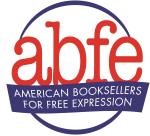- Categories:
ABFE Urges Veto of Virginia Bill Restricting Student Access to Books [4]
- By Chris Finan [5]
 American Booksellers for Free Expression [6] (ABFE) has joined other free speech groups in urging Virginia Gov. Terry McAuliffe to veto a bill that they fear will have a chilling effect on the selection of books that are taught in the state’s public schools.
American Booksellers for Free Expression [6] (ABFE) has joined other free speech groups in urging Virginia Gov. Terry McAuliffe to veto a bill that they fear will have a chilling effect on the selection of books that are taught in the state’s public schools.
House Bill 516 requires teachers in elementary and secondary schools to notify parents when students will be reading books containing “sexually explicit” content. If a parent objects, the school must provide “nonexplicit instructional material and related academic activities” to the student.
H.B. 516 was introduced by Republican members of the legislature in response to lobbying by the mother of a high school senior who was assigned to read Toni Morrison’s Beloved in an Advanced Placement English class. The mother, Laura Murphy, was also unhappy that her son had been asked to read Morrison’s The Bluest Eye, Ralph Ellison’s Invisible Man, and Cormac McCarthy’s The Road.
Murphy said that the bill is a logical extension of an existing policy that allows parents to prevent their children from participating in sex education classes. Almost half of Virginia school districts already require teachers to warn parents of “potentially sensitive or controversial material in the classroom.”
In a letter to Gov. McAuliffe [7], ABFE, the National Coalition Against Censorship, and other groups argue that the use of the words “sexually explicit,” which are not defined, will restrict the range of titles that are currently taught.
“The term is vague and could apply to a great deal of classic and contemporary literature, including Anne Frank’s Diary of a Young Girl, Geoffrey Chaucer’s The Canterbury Tales, Theodore Dreiser’s An American Tragedy, Kurt Vonnegut’s Slaughterhouse-Five, Gustave Flaubert’s Madame Bovary, Sherman Alexie’s The Absolutely True Diary of a Part-Time Indian, the Bible, and most works by William Shakespeare,” the letter says.
The signers fear the law could flood the schools with complaints because singling out books with sexual content for notification inevitably presents them in a negative light regardless of their educational value. They worry that an isolated passage will be used to judge the whole work. “Whatever happened on page 32 of the book is not why the book was chosen,” Millie Davis of the National Council of Teachers of English told the Washington Post. [8]
The letter also warns that faced with the necessity of teaching multiple books, teachers may decide to jettison “explicit” titles. The Ninth Circuit Court of Appeals predicted such a possibility in a similar case. In the decision Monteiro v.Tempe Union School District, the court wrote, “Due to the practical burdens, schools would be unlikely to choose to teach alternative works separately.... Instead, they would probably simply remove books that they believed to be educationally valuable, but that might be controversial, or offensive to some.”